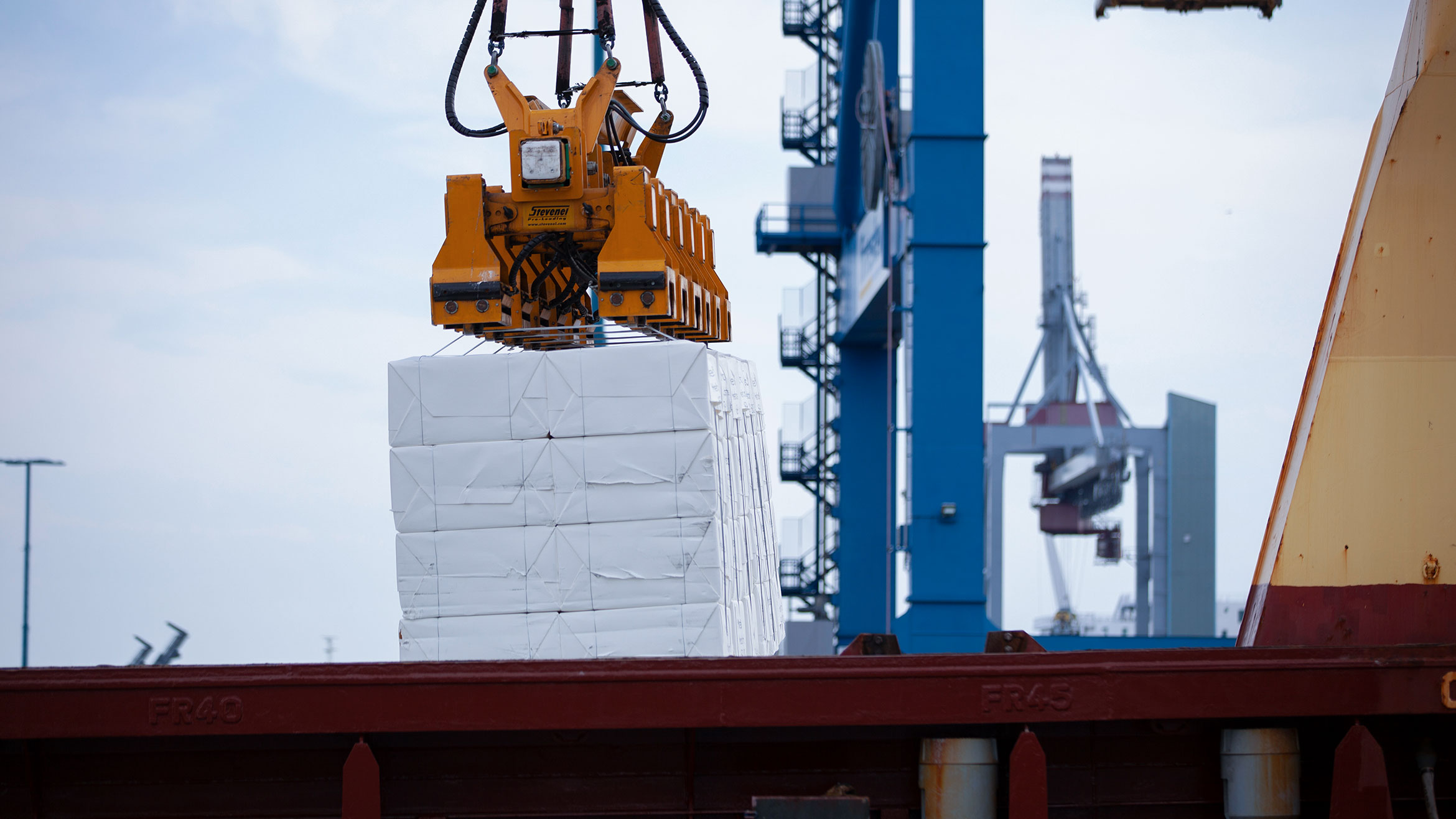The new bioproduct mill in Kemi will be started up by the same employees who shut down operations at the old mill. The switchover is expected to cause only a short production break of a week or so. It will not affect delivery reliability, says Ari Harmaala, Senior Vice President, Sales and Customership at Metsä Fibre.
“Production will transition seamlessly to the new bioproduct mill in the third quarter of 2023 without interrupting customer deliveries. We will reach full production capacity within a year of the mill start-up,” says Harmaala.
The biggest change for Metsä Fibre’s customers will come from the increase in capacity. With an annual pulp production volume of 1.5 million tonnes, the new bioproduct mill will be the most efficient wood-processing plant in the northern hemisphere. Softwood pulp will account for approximately 1,200,000 tonnes, and birch pulp for some 300,000 tonnes, of the overall production.
“The larger production capacity in Kemi means that our market pulp capacity will increase by 800,000 tonnes in softwood pulp and by 100,000 tonnes in hardwood pulp.”
Despite the higher production volumes, the world’s most environmentally efficient bioproduct mill will produce premium pulp more cost-effectively than ever.
“We are investing in the processes and equipment to ensure we can improve environmental performance and cost-effectiveness at the same time. This translates to ever better customer service,” says Harmaala.
Goods produced at the bioproduct mill will be exported from the Port of Kemi all year round. Transports will be handled with ice-strengthened break bulk vessels.
Investments in bioproduct mill logistics
The supply of feedstock is secure despite the new mill’s considerably greater production volume.
Alongside road transport, rail will play an increasingly important role in wood deliveries to the mill. The greater need for wood means that it will be arriving from a wider area, but thanks to rail transport, the emissions from logistics will drop.
Concerning the adequacy of material, Harmaala is confident that Finnish forest assets will cover future needs.
“Thanks to sustainable forest management, forests here grow faster than they are felled. If necessary, we can procure wood from Sweden, where the sustainability of forest management is also good,” he adds.
“In terms of logistics, the biggest change is that goods from the new mill will be transported as bulk cargo on large break bulk vessels sailing from the Port of Kemi all year round.”
To make this possible, a new warehouse of 37,000 square metres will be built at the port. In addition, the fairway in Kemi will be deepened to 12 metres so that large vessels can reach the port safely.
Ice-strengthened vessels ensure that pulp bales can be transported as bulk cargo irrespective of the season. The northern winter will not affect delivery times.

Bookings can now be made for the additional volume
Harmaala expects that the additional mill output will go mainly to current customers in Asia and new customers in North America.
“In Europe, we are mostly striving to maintain our current market share. The Middle East is a growing market, and growth is also on the horizon in Asia, especially China.”
Metsä Fibre is already a major pulp supplier for the Chinese market. In the years ahead, the country will be making large paper mill investments and, thanks to the new mill in Kemi, Metsä Fibre will be even better positioned to supply premium pulp to them.
“We have already signed letters of intent for deliveries from the additional volume from the new mill and will be signing more. Companies needing additional volume should contact our sales team and book capacity from our new mill,” Harmaala says.
This article was originally published in Fibre Magazine issue 2021-2022.
